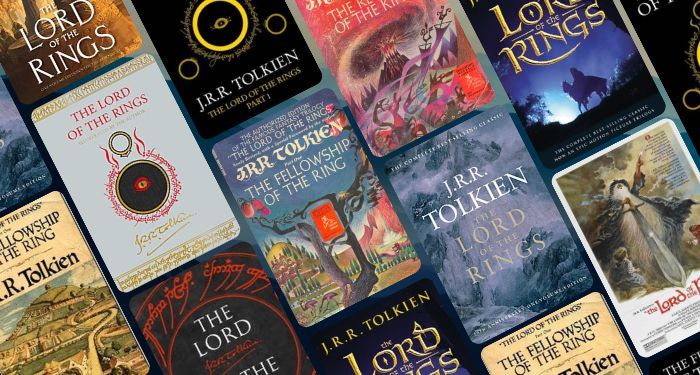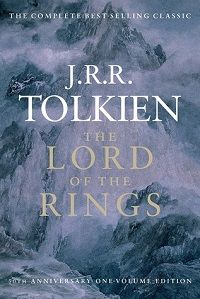
How Rereading Lord of the Rings Helped Me Cope With My OCD
I have obsessive-compulsive disorder that often focuses on health-related intrusive thoughts. So, as you can imagine, living through a global pandemic has been something of a nightmare.
At first, I tried to be brave. I kept myself busy by reading, walking my dog, pretending that my day job was the greatest of my concerns. And all the while the fear that I or those I love could die suddenly, with no warning — of COVID-19 or anything else — gnawed at me.
OCD was nothing new to me. I was diagnosed when I was 13 years old, with plenty of ups and downs in the years since. But I’d always had some kind of support to get through it. I had friends and family by my side when I needed a shoulder.
It was true that I had my fiancé — now husband — for support. But he worked full-time at the hospital and I worked from home. I was by myself for most of the day, and my mental health had always been worse when I was alone.
I made it to summer last year before I broke down. A few weeks before my 23rd birthday, I learned I would need some extensive — and expensive, nearly more than we could afford — dental work done in order to prevent a jaw infection. Between the steep price, the inability to turn to friends for in-person comfort, and the threat of my health-related fears becoming a reality, I became consumed by worry.
For a few weeks, I spent full days at the mercy of my compulsions — or repetitive behaviors that I hoped would take the edge off my anxiety but never did. I googled health questions for hours on end, which only heightened my panic. I called my doctors repeatedly. I stayed up late many nights crying and convinced I didn’t have the strength to make it through this. The burden of living with constant panic was just too great, and I was too afraid to ignore my compulsive urges.
Around this time, I also began to reread the Lord of the Rings trilogy in the hopes that it would distract me from my worries. And of everything that has happened since, I credit this as the greatest support next to only my husband for getting through this mental health crisis and emerging stronger.
On a surface level, immersing myself in Middle-earth lore was a great way to forget about my real-life issues for a while. Plus, anything Tolkien-related came with a comforting level of nostalgia for me. But when I got to the chapter in Fellowship of the Ring where Frodo asks Gandalf why he must face the seemingly impossible task of destroying the Ring, I was overcome with emotion.
“I am not made for perilous quests. I wish I had never seen the Ring! Why did it come to me? Why was I chosen?”
“Such questions cannot be answered,” said Gandalf. “You may be sure that it was not for any merit that others do not possess: not for power or wisdom, at any rate. But you have been chosen, and you must therefore use such strength and heart and wits as you have.”
For so long, I’d been searching for a reason behind my obsessive-compulsive disorder. Why couldn’t my brain function normally, and why did I have this illness that caused so much emotional suffering? Why was I forced to deal with constant intrusive thoughts and urges to relieve the thoughts that only made them worse?
But for whatever reason, Gandalf’s words struck me. Maybe there wasn’t an answer to why I had obsessive-compulsive disorder, anymore than Frodo could find an answer for why he needed to bear the ring. Purpose or no, I had OCD and I needed to be as strong as I could be — for myself and my family — to get through it.
I think the reason it comforted me so much was because it acknowledged that suffering isn’t fair and there isn’t always a reason that it’s happening to you. It can strike you out of nowhere and make you face challenges that feel insurmountable. But it’s also important to acknowledge that you are suffering and be as strong and as vulnerable as you can to survive it.
So that’s what I did. I tried to be strong. I enrolled myself in therapy in order to better cope with my intrusive thoughts. I got the dental work I needed. I leaned on my husband more desperately than I ever had and, by focusing on just surviving each day as it came, we got through it.
All the while, I kept reading Lord of the Rings — slowly but steadily as the months went by. When Frodo was tempted to put on the Ring, I felt less guilty about all the compulsive urges I tried to fight off with varying success. And when the hobbits reminisced about their simpler and less bleak lives in the Shire, I thought about life before my mental health crisis, before the pandemic.
I finally finished my reread this past March, around when I had finished the bulk of the dental procedures I needed done and the first people were receiving access to the COVID-19 vaccine. Reading the last pages — of the Ring’s destruction, the hobbits’ return to the Shire, and of Frodo’s inability to find peace in what had once been his home — I felt several emotions.
First, there was the relief of having survived my OCD crisis and overcome so much over the past year. There was also consolation at having finally finished a reread I’d begun months ago. But the crushing weight of all I’d had to go through, of all the pain I’d felt and the time I’d never get back when overcome with intrusive thoughts. I mourned for that, and sometimes I still don’t feel that the strength I’ve gotten from it is worth it.
I am not the same person that I was last summer. I am stronger, in some ways, but also more broken. But I don’t think that’s a bad thing. Instead, I think it is the mark of surviving a seemingly insurmountable challenge. I’m just grateful that I was able to do so through the catharsis of such a beautiful story.


















